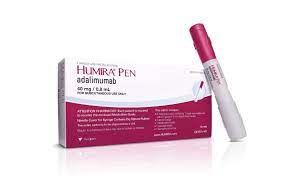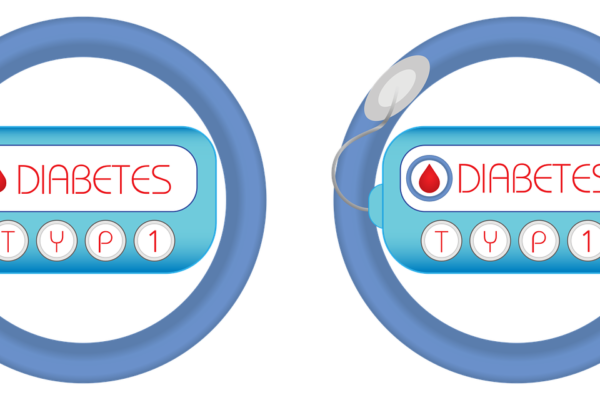Adalimumab is a medicine that belongs to the class of biologic DMARDs (disease-modifying antirheumatic medications). Humira is a common brand name used in marketing.
Adalimumab is used to treat specific kinds of arthritis (including rheumatoid, psoriatic, juvenile idiopathic, and ankylosing spondylitis) by reducing pain and swelling. Additionally, this drug is used to treat some skin conditions, including hidradenitis suppurativa and plaque-type psoriasis.
Mechanism of Action
Tumour necrosis factor-alpha (TNF-alpha) is a particular protein in the body that adalimumab targets and inhibits. TNF- is a cytokine, a class of signalling molecule that plays a role in the immune response and inflammatory processes of the body.
TNF- is overproduced in some inflammatory illnesses, including rheumatoid arthritis, psoriatic arthritis, ankylosing spondylitis, and others. The symptoms that these illnesses induce in patients, such as joint pain, swelling, and skin lesions, are caused by chronic inflammation brought on by this excess TNF-, which harms tissues and organs.
Adalimumab is an antibody, a class of protein created with the particular purpose of identifying and interacting with TNF-. As a result, it stops TNF- from attaching to cell surface receptors. TNF- is inhibited, which prevents it from initiating the inflammatory response and lowers inflammation in the afflicted tissues.
In some situations, reducing inflammation can also help patients live better overall lives by slowing the course of joint deterioration and relieving the symptoms of autoimmune disorders.
Adalimumab is classified as an anti-TNF treatment or TNF inhibitor since it directly targets TNF-. It is one of a number of drugs that have a similar mechanism of action but differ slightly in their characteristics and routes of administration. Depending on the illness being treated, adalimumab is normally given as a subcutaneous injection beneath the skin once every one to two weeks.
Used In
Adalimumab is used to treat various autoimmune conditions, primarily inflammatory diseases such as:
- Rheumatoid arthritis: A chronic inflammatory disease that affects the joints, causing pain, swelling, and stiffness.
- Psoriatic arthritis: An inflammatory arthritis that occurs in some individuals with psoriasis, a skin condition.
- Ankylosing spondylitis: A type of arthritis that primarily affects the spine, causing inflammation, pain, and stiffness.
- Plaque psoriasis: A chronic skin condition characterized by red, scaly patches on the skin.
- Juvenile idiopathic arthritis: A form of arthritis that affects children and adolescents.
- Crohn’s disease: An inflammatory bowel disease that affects the digestive tract.
- Ulcerative colitis: An inflammatory bowel disease that affects the colon and rectum.
This is not an exhaustive list and the medicine may be used for other treatments as well.
Side Effects
Like any medication, Adalimumab may have unwanted effects on some people. Although the majority of users tolerate the medication well, it’s important to be informed of any potential side effects. Adalimumab’s typical side effects could include:
- Injection site reactions: Redness, swelling, itching, or pain at the site of injection.
- Headache: Mild to moderate headaches are sometimes reported.
- Upper respiratory tract infections: Adalimumab may slightly increase the risk of developing infections such as the common cold.
- Gastrointestinal symptoms: Nausea, diarrhea, or abdominal pain may occur.
- Increased risk of infections: Adalimumab can weaken the immune system, making individuals more susceptible to infections, including serious bacterial, fungal, or viral infections.
- Allergic reactions: In rare cases, some individuals may experience severe allergic reactions to adalimumab, with symptoms like difficulty breathing, swelling of the face or throat, hives, or severe itching.
- Blood disorders: Adalimumab can rarely cause changes in blood cell counts, which may lead to anemia or other blood-related issues.
- Liver problems: There have been rare reports of liver damage associated with adalimumab use.
- Heart failure: Adalimumab may increase the risk of heart failure in some patients, particularly those with pre-existing heart conditions.
Adalimumab Market Share and Size
During the forecast period (2022-2027), the market for Adalimumab medication is anticipated to grow at a 5.1% CAGR. Adalimumab, which is said to be the most popular medication, alleviates rheumatoid arthritis and other autoimmune diseases by scavenging the pro-inflammatory protein TNF-. Adalimumab, an Abbott patented product, it is also known as HUMIRA and is designed to be injected under the skin. It can aid in avoiding conditions that harm the body.
AbbVie Inc., the pharmaceutical subsidiary of Abbott Laboratories, was spun off in January 2013. Adalimumab was offered by AbbVie under the trade name Humira. It was approved by the FDA and the European Medicines Agency in 2008 and 2003, respectively. Humira’s patent expired in various countries and resultantly, biosimilars are expected to experience rapid growth over the course of the forecast period.
Adalimumab’s biosimilar market is predicted to grow quickly over the course of the projection period. One of the drugs with the highest global sales is adalimumab. Furthermore, it is predicted that the introduction of competitors for adalimumab biosimilars will encourage the growth of the global adalimumab biosimilar market.
Due to new strategic alliances and acquisitions, the market for biosimilar Adalimumab keeps growing. Biosimilars also lower the cost of care, enabling patients to get the treatment they need. The market for biosimilar adalimumab will be driven by the expanding demand for biosimilar medicines during the anticipated period, as well as the rising need for affordable treatment in low- and middle-income countries.
The main obstacle to the market expansion for adalimumab biosimilars, however, is the difficult regulatory process for biosimilar licensure. The expansion of the adalimumab biosimilar market is also hampered by the strategies used by patent holder companies to fend off biosimilar competition. For instance, Boehringer Ingelheim was the target of a complaint from Abbvie for a biosimilar Humira medication.
Adalimumab demand is growing in tandem with the prevalence of autoimmune illnesses, which is what is driving the market. Approximately 4% of the world’s population is afflicted by an autoimmune disease, according to the National Stem Cell Foundation (NSCF). The most prevalent autoimmune disorders include psoriatic arthritis, plaque psoriasis, ankylosing spondylitis, Crohn’s disease, rheumatoid arthritis, and ankylosing spondylitis.
The National Psoriasis Foundation estimates that there are 125 million persons with psoriasis worldwide, or between 2 and 3 percent of the world’s population. Psoriatic arthritis, a chronic inflammatory arthritis that causes deformities in the joints and incapacity, develops in about 30% of psoriasis patients. Between 0.1% and 1.4% of the world’s population suffer from ankylosing spondylitis. Compared to women, men experience it more frequently.
Ankylosing spondylitis symptoms appear in about 80% of people in the age range at or before the age of 30, according to the Arthritis Foundation. Ankylosing spondylitis affects 5% of patients who are 45 years of age or older.
North America, Europe, Asia Pacific, Latin America, and the Middle East & Africa make up the segments of the global market for adalimumab biosimilars. North America is predicted to hold the greatest market share for adalimumab biosimilars due to the rising prevalence of rheumatoid arthritis and the growing elderly population.
Due to an increase in the approvals of new biosimilars, an ageing population, and substantial investment in the development and production of the new adalimumab biosimilars, Europe is predicted to grow more quickly. The worldwide adalimumab biosimilars market in these regions is predicted to be driven by the growing focus on developing generic and biosimilar pharmaceuticals in the emerging nations of Asia and the Pacific.
One of the top-selling biologic drugs globally was adalimumab (marketed as Humira). Adalimumab biosimilar competitors have reached the market as Humira’s patents and exclusivity periods have begun to lapse in a number of jurisdictions. The efficacy and safety profiles of these adalimumab biosimilars are intended to be comparable to those of the original medicine, giving patients more choices and possibly lowering healthcare costs.
The Adalimumab market studied is a fragmented market with the presence of a large number of market players.
A few of the adalimumab biosimilar rivals that are either already on the market or in development are:
- Amgevita (Amjevita) – Produced by Amgen.
- Cyltezo – Produced by Boehringer Ingelheim.
- Hadlima (Hyrimoz) – Produced by Sandoz.
- Hulio (Abrilada) – Produced by Mylan (now part of Viatris).
- Hyrimoz – Produced by Sandoz.
- Idacio – Produced by Fresenius Kabi.
- Imraldi – Produced by Samsung Bioepis.
- Hefiya (Halimatoz) – Produced by Zydus Cadila (ZyCAd).
- Hyrimoz – Produced by Novartis.
- ZRC-3197 – Produced by Zydus Cadila.
Conclusion
Adalimumab’s broad usage in the treatment of autoimmune diseases, including rheumatoid arthritis, psoriatic arthritis, ankylosing spondylitis, Crohn’s disease, ulcerative colitis, and plaque psoriasis, was the main factor driving the demand for the drug. The significant demand for adalimumab is a result of the widespread prevalence of these chronic inflammatory diseases.
Adalimumab’s success on the market can be related to its efficiency in treating certain autoimmune illnesses, which includes relieving symptoms, enhancing quality of life, and, in some cases, slowing the development of the disease. Adalimumab is frequently a beneficial therapy option for patients who do not respond well to other medicines or have contraindications to other therapies.
However, the market has become more competitive as a result of patent expirations and the release of adalimumab biosimilars. The availability of biosimilars, which have been authorised and made accessible in a number of locations, is anticipated to have an effect on the overall market share of the original Humira.
More treatment alternatives are made available by the advent of biosimilars, which may also lower the price of therapy for patients, healthcare systems, and payers. The existing patient base and the clinical expertise with adalimumab have probably contributed to its prolonged market presence despite competition from biosimilars.
It’s crucial to keep in mind that the pharmaceutical market is dynamic and that market trends keep changing with recent advances and modifications.
References:
https://go.drugbank.com/drugs/DB00051
https://www.insightaceanalytic.com/report/global-adalimumab-biosimilar-market/1058
https://www.mordorintelligence.com/industry-reports/adalimumab-drugs-market
https://www.databridgemarketresearch.com/reports/global-adalimumab-market
https://www.fortunebusinessinsights.com/industry-reports/adalimumab-biosimilar-market-100594






Leave a Reply